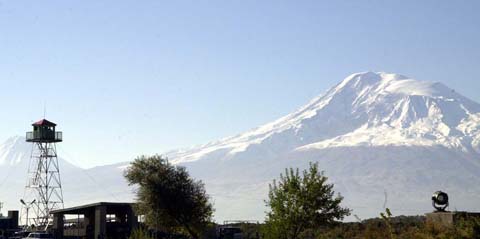Hrant Dink Foundation: Research on the Socio-Economic Impact of the Turkey-Armenia Border
Hrant Dink Foundation: Research on the Socio-Economic Impact of the Turkey-Armenia Border –
Hrant Dink Foundation – The Turkey-Armenia border, sealed in 1993, completely disregards the interests and welfare of people on both sides, and negatively impacts social development, economy and environment of border cities and the region as such. The border remaining closed for two decades did not bring any desired settlement in Nagorno-Karabakh, which was the justification for the sealing of the border. Yet, it caused a significant level of isolation in the border cities, which remain to be the most underdeveloped cities in Turkey in economic and social indicators. Even though the air traffic is allowed between Istanbul and Yerevan, the land border remains sealed and the Kars-Gyumri trains operating before 1993 were stopped long time ago. This situation prevents the border cities to have direct trade with Armenia, which carries a significant potential for them and it curbs all forms of regional, cross-border cooperation initiatives and means of dialogue. The people in the region, who currently have very limited mobility, wants open borders for trade, tourism, health, education and other purposes and they voice their demands on various occasions. In 2005, 50,000 inhabitants of Kars signed petitions for open borders and submitted their common demand to the government. Despite this initiative and the protocols signed by the two governments in 2009, which was the most concrete step taken towards open borders since 1993 yet failed before ratification, the Turkey-Armenia borders remains sealed to this date.
This being the case, the Hrant Dink Foundation felt the need for a scientific study with a view to measure the socio-economic impacts of the sealed border on the local population, to make visible the missed opportunities in the region and to uncover the potential and prospects. As a result, the ‘Research on the Socio-Economic Impact of the Turkey-Armenia Border’ was commissioned to independent researchers and was carried out in the years 2012-2013 under the supervision of the research adviser Prof. Dr. Asaf Savas Akat and with the support of TÜSIAD (Industry and Business Association of Turkey) and Istanbul Policy Center of Sabanci University. The research consisted of an econometric analysis that made comparisons with other border regions as well as a qualitative field study. Bahçesehir University Center for Economic and Social Research (BETAM) conducted the econometric study, which analysed the commercial and economic potential of open border for the region.
By means of in-depth interviews Social Research Center (SAM), took the current picture of the region and examined people’s demand about their future, about the potential of open borders as well as existing barriers to overcome.
For the qualitative field study, the researches organised joint site visits to the provinces of Kars, Igdir and Ardahan bordering Armenia, and held in-depth interviews with about seventy respondents from the chambers, local authorities, regional development agency representatives, academics and civil society and collected data in the fields of agriculture-husbandry, health, youth and education.
We hope that this report, which compiles the findings of both studies, will help voice the demands of the local people in the region and will contribute to future initiatives geared towards joint development of the two neighbouring countries.
Research on the Socio-Economic Impact of the Turkey-Armenia Border was conducted with the support of Turkish Industry and Business Association (TÜSIAD) and Sabanci University Istanbul Policy Center.
The research findings are translated and printed with the support of Friedrich Ebert Stiftung Dernegi Turkey Office.
Hrant Dink Foundation
Please click here to read the ‘Research on the Socio-Economic Impact of the Turkey-Armenia Border

